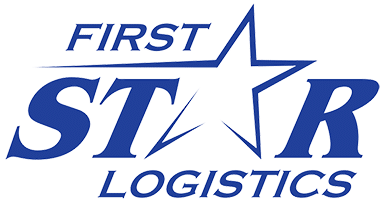Freight claims are a significant pain to shippers, receivers, and carriers. Everyone who has a stake in the shipping process can benefit from understanding freight claims and working to reduce them. In this guide, we define freight claims, explain the difference between liability and insurance, detail the main types of freight claims, and share our insight on how to avoid freight claims.
What are freight claims?
A shipper can pursue financial reimbursement if a shipment is damaged or lost. Freight claims are legal demands for compensation for lost or damaged freight and may also be referred to as shipping, cargo, loss and damage, and transportation claims. A freight claim aims to rectify the situation so that the Bill of Lading (BOL) is fulfilled. If something is lost or damaged, the carrier insurance cannot single-handedly replace or fix the goods, but they can provide financial compensation to cover the costs of fixing or replacing the goods. The claims requests typically cover only costs, not profits, although this rule has occasional exceptions.
What is the difference between freight liability and freight insurance?
Carriers have insurance, but only some things are covered under the insurance. Freight insurance does not protect against all the losses that can happen on a carrier’s watch. In fact, under the common law or Cormack Amendment, carriers are responsible for much more than insurance covers. Lots of variables with insurance, so it’s important for all parties involved to understand the scope of liability and insurance.
Freight Liability
Based on the Carmack Amendment, which was applied to motor carriers in 1935, established a national standard for liability for loss or damaged freight. The amendment states that a carrier is liable for all shipment loss, damage, and delay as long as it doesn’t fall into one of these five categories:
- An act of God
- An act of a public enemy
- An act of the shipper
- An act of public authority
- The inherent nature of the goods
If none of these categories apply, the carrier is responsible for paying the actual loss of the shipment.
Freight Insurance
Every shipment comes with some limited liability coverage. But not all damage or loss is caused by a carrier area. Sometimes, the loss or damage is caused by shipper errors. The carrier is not liable if poor packaging, loading issues, or weather-related causes cause damage. Instead, freight insurance is used to cover the freight and the freight shipping cost.
4 Types of Freight Claims
Four different types of claims can be filed against a carrier if they are liable.
- Damage – This type of freight claim pertains to goods that arrive at the destination in damaged condition. For freight to be covered by this type of claim, the damage must be visible and noted on the proof of delivery.
- Loss – This type of freight claim pertains to goods that were picked up but not delivered. Shippers must show an original bill of lading (BOL) and no delivery receipt to prove the loss claim.
- Shortage – In a shortage freight claim, only a portion of the expected freight outlined in the BOL arrives at the destination. Many circumstances can lead to a shortage claim, so it is crucial to verify the components of the shipment against the delivery receipt. If the shortage is acknowledged and documented at the time of delivery, it is much easier to file a claim.
- Concealed Damage or Shortage – A concealed freight claim is difficult to recognize and file because the damage or shortage is not immediately apparent or visible. The best practice is to inspect the freight upon arrival. Request that the driver acknowledge the damage or loss and not include it on the proof of delivery.
How To Avoid Freight Claims
Dealing with a claim is a major headache for everyone involved. Claims disrupt the flow of business and create a landslide of issues. Here is one way to make unavoidable claims less of a pain and one way to avoid freight claims altogether.
Thoroughly Inspect Freight Upon Arrival
When a shipment is delivered, the recipient must inspect the freight thoroughly to look for damages and shortages, both visible and concealed, before the driver leaves. Conducting a thorough inspection is the responsible thing to do. It gives everyone peace of mind, and if any issues are noticed, it simplifies the process of filing a claim because the issue can be documented on the proof of delivery.
Partner with a Quality Logistics Provider
The best way to avoid claims is to work with a trusted logistics provider. First Star Logistics is a unique asset-based global brokerage company with over 60 years of experience. We take great pride in meeting the needs of our customers, carriers, brokers, and agents. For our customers, we understand that efficiency, safety, and reliability are crucial. We use fast, cutting-edge technology to ensure a satisfactory experience with our specialized shipping services. We support our carriers with the technology, management, resources, and support they need to ensure safe, on-time delivery for shipments. We provide our agents and brokers with a dedicated management team and proprietary software that empowers our employees to succeed.
To work with First Star Logistics, contact us today!



